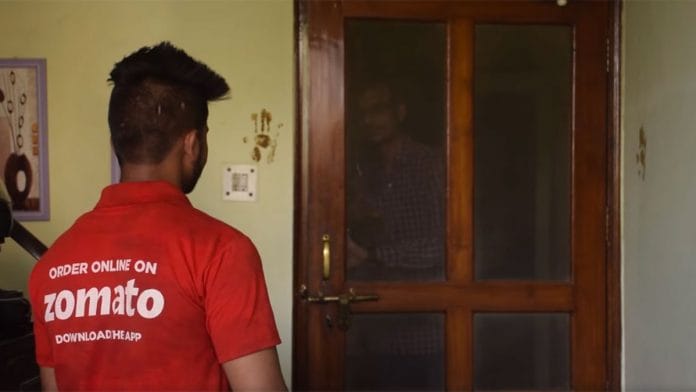The RWAs in Indian cities are now becoming the first line of defence against the coronavirus pandemic that has infected over 400 people. From regularly sharing WHO advisories, global articles on coronavirus to information about Amavasya and the benefits of beating thalis and blowing shankh to videos on hand-washing, the RWA is now the go-to WhatsApp group for all COVID-19 action.
The Residents Welfare Association (RWA) of India’s apartment blocks and condominiums are also behaving like private republics, banning domestic workers, Zomato delivery men and Amazon courier agents from entering the gate.
Traditionally, India’s RWAs are filled with middle-aged or retired uncles who find purpose in their old age by organising events, holding pujas and performing various kinds of festivals. But this time, they have found a greater calling. With Prime Minister Narendra Modi’s address, they are determined to take on coronavirus. Everyone feels a soldier under General Modi. Some are using phrases like ‘war footing’ in their WhatsApp groups.
Also read: Rajasthan’s COVID-19 headache — travellers skip screening, suspected cases flee quarantine
RWAs at the forefront
The fight against coronavirus in India has become multi dimensional — from desi methods of tulsi, amla and beetroot to meditation and Om chanting, to urging residents not to buy newspapers during this period.
While the people living in densely populated slums are on their own, for middle-class and upper classes, the RWA is coordinating all civic efforts. On Sunday, people saw the RWAs actively participate and motivate people for thali bajao karyakram (‘bang the plate’ programme). In plush Gurgaon condominiums, the RWAs organised flu vaccination camps, closed the gym and swimming pool, dispelled rumours and myths, and even started requesting records of residents’ recent travel history as well. Initially, people were not forthcoming, but the Modi government’s directive has now emboldened the association to demand this information. Some even installed wash sinks at the gate with soap for domestic workers to wash their hands.
Noida apartments have reported some positive cases of coronavirus. And their RWAs swung into action. How can the foreign travellers escape the watchful eyes of RWA officials and the guards they have appointed? After all, the RWAs are always keenly watching the young residents’ lifestyle. If a coronavirus positive patient challenges them in this way, it is a collective shame — and thereby a challenge — for them.
Also read: Neighbourhood RWAs face greater scrutiny than political parties in democratic India
Keeping ‘others’ out
The gated communities were never really porous. But now they have become fortresses.
In Delhi Police Apartments at Mayur Vihar, you need to justify why you are entering the campus. Similarly, in Samachar Apartments and nearby Manu Apartment, guards get hyperactive when they see strangers. Now, you have to pass through multiple checks before you can enter any apartment. Trespassers are viewed with scorn and asked to show papers. Some are organising special chanting sessions.
They may not be medical experts or have sufficient resources to prevent coronavirus, but they know that they can implement ‘Haath ki Safai’ and ‘Ajnabiyon ka Pravesh Warjit Hai’. This is an initiative to laud and, at the same time, be wary of. It sets a precedence that has class overtones and can bring about long term surveillance in these residences.
The residents are welcoming harsh measures, but some do fear about long-term impact as well. For now, COVID-19 calls for a disciplined fight against the culture of ‘tu jaanta nahin main kaun hun’ (you don’t know who I am).
Also read: COVID-19 puts burden on gig economy workers. But can they deliver without social protection?
Take working class along
However, the fact is that the virus is still in the second stage in India. What will the RWAs morph into if India crosses to the next sage? Will they be able to isolate, quarantine and help victims of coronavirus at the same time?
Another fact is that the RWAs are connected with the lower class economically. The economics of nearby slums depend on the apartments. Also, the same lower class may be seen as the carrier of virus even if it was the other way round.
Despite everything, the efforts of RWAs are laudable. However, they should be the first line of defence for the lower class too because both the residents and workers depend on each other. If the latter are ‘otherised’ in the times of coronavirus pandemic, it will take a long time to repair ties and reclaim mutual trust later.
Views are personal.







Sorry, the writer seems to be in two minds while writing the story: she isn’t sure whether to praise the RWAs for rising to the occasion, or decry them for toeing the Govt line. The maids, at least in our Greater Noida society, have been asked to take paid leave. We have kept the count of people returning from abroad as advised by the DM, and in some cases people tried to hide the facts and refused self quarantine. Delivery boys are stopped at the gate and asked for IDs and surprisingly, lots of them including Swiggy boys, don’t carry them. What’s the harm in keeping yourself secure?
And what are the national swayam sevaks doing?
Amazing description of ground realities. To my mind if these house serving or domestic helping people could learn to live for a month or so they should continue quarantining themselves as they would be more vulnerable so must not do any work and sit at home! As far as their owner are concerned generally they live in excellent health and hygienic condition so they should be permitted to protect themselves during this gap and should strengthen their immunity for future betterment of country! This way there will be win win situation for both !